Goldenseal, also known as white Indian plant, American yellowroot, or by its scientific name Hydrastis canadensis, is a highly popular herb in the United States. For centuries, it has been used in conjunction with echinacea to treat or prevent colds. It is also believed to have antibacterial properties and is sometimes used to treat eye infections, diarrhea, urinary tract infections, mouth ulcers, vaginal inflammation, and various other ailments.
One reason why goldenseal is popular is because of rumors that taking this herb can help you pass a drug test by yielding a negative result. However, there is no evidence to suggest that it is effective in doing so. Some research reports indicate that taking goldenseal does not alter the results of drug tests.
Goldenseal is a perennial herbaceous plant that grows small in size, with a single hairy stem. It has two serrated lobed leaves, small flowers, and raspberry-like fruits. The roots and stems are the parts used; the roots are bitter-tasting, bright yellow or brown in color, twisted, and wrinkled.
Goldenseal is native to North America and can be found in fertile, shaded areas of the soil. However, excessive harvesting and loss of habitat have reduced the supply of wild goldenseal. Currently, this plant is commercially cultivated on farms in the United States, especially in the Blue Ridge Mountains.
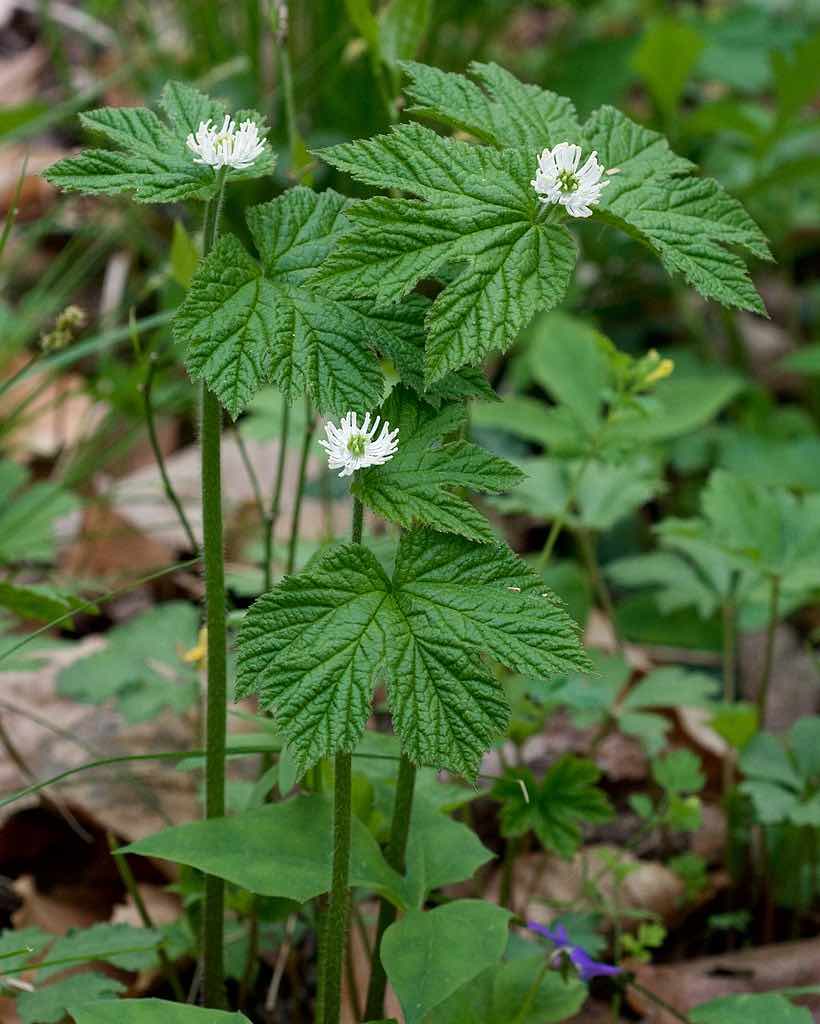
Goldenseal
Goldenseal contains an alkaloid called berberine, which can kill certain bacteria and fungi. There is limited research on goldenseal. Some studies suggest that berberine can alleviate acute diarrhea [1] Trusted Website PubMed is a data base from US National Institutes of Health. It’s a trusted source of health and medical information. Open the link → , but when goldenseal is taken orally, it is difficult for the berberine in it to be absorbed by the body or enter the bloodstream. Therefore, the research findings on berberine may not be applicable to goldenseal.
Uses of goldenseal
When European settlers arrived in America, Native Americans had already been using goldenseal extensively as a dye, for treating eye inflammation, cancer, skin diseases, ulcers, fever, and other ailments.
Currently, goldenseal is promoted as a treatment for colds and other respiratory infections, or as a dietary supplement for allergies, sinusitis, hay fever, ulcers, diarrhea, constipation, indigestion, mouthwash for treating gum soreness, eye wash for eye soreness, fatigue, burning, redness, inflammation, pink eye, or for treating rashes, acne, and other skin problems.
Goldenseal is also used in alternative medicine as an adjunct treatment for urinary tract infections, hemorrhoids, stomach discomfort, colitis, nasal congestion, irregular menstruation, chronic fatigue syndrome, and other ailments. Additionally, berberine is widely used in Traditional Chinese Medicine (TCM) to treat dysentery and infectious diarrhea.
Other potential uses:
- Minor wounds: Goldenseal appears to have antiseptic properties, so it is sometimes used to disinfect cuts and abrasions.
- Mucous membrane issues and antimicrobial effects: It can increase mucous membrane secretions when they are insufficient, such as increasing the production of immunoglobulin A-containing healthy mucus to enhance antimicrobial power. It can also reduce/stop excessive mucous membrane secretions, helping to clear excess mucus and accumulated mucosal inflammation.
- Tuberculosis: There are now studies suggesting that berberine can assist in the treatment of tuberculosis [2] Trusted Website NCBI, US National Center for Biotechnology Information, is a trusted source of biotechnology and biomedicine information. Open the link → , although berberine is not used as the primary or adjunct therapy for tuberculosis.
- Blood sugar control in diabetic patients.
- Antibiotic or immune booster: Berberine is sometimes considered a natural antibiotic, although research has not demonstrated its effectiveness in humans. It is often used in combination with echinacea and promoted as an immune system enhancer. Furthermore, it has been studied for its use in treating Helicobacter pylori (bacteria that cause ulcers) infections.
- Astringent: It can contract body tissues, such as aiding in uterine contraction and postpartum uterine involution.
- Menstrual period and postpartum bleeding control. Specifically, it may be able to reduce bleeding.
- Treating edema, leukorrhea, gallstones, breast swelling, and thyroid enlargement.
- Treating malaria and aiding digestion, relieving stomach discomfort.
- Treating itching, eczema, ringworm, herpes blisters, and cold sores.
- Treating liver congestion, cirrhosis, and chronic cerebral congestion.
- Dilating blood vessels and aiding in the treatment of heart failure.
- Muscle stimulant, promoting better functioning of organ systems.
- Stimulating appetite, aiding digestion, relieving stomach discomfort.
- Stimulating bile production and secretion.
- Stimulating the central nervous system.
- Mild laxative.
- Overall body tonic.
While goldenseal has a wide range of uses, currently there is no scientific evidence supporting the use of goldenseal for any health-related purposes, nor have studies confirmed its effectiveness in treating any diseases. Goldenseal products have not been approved by the FDA for any medicinal use, so do not use goldenseal as a substitute for medications prescribed by your doctor.
Goldenseal is commonly sold as an herbal supplement. Many herbal compounds lack regulated manufacturing standards, and some commercial supplements have been found to be contaminated with toxic metals or other drugs. It is recommended to purchase herbs/dietary supplements from reliable sources to reduce the risk of contamination.
5 Recommended goldenseal products
Goldenseal is available in tablet and capsule (containing root powder), liquid extracts, and glycerin (low-alcohol extracts) forms. Oral goldenseal contains only a small amount of berberine, and some experts believe that berberine in goldenseal is poorly absorbed when taken orally. Here are 5 well-regarded goldenseal products.
1. GNC Goldenseal Root Extract
GNC, established in 1935 in Pennsylvania, is a reputable American brand in the nutrition industry. This GNC Goldenseal Root Extract capsule is a herbal supplement with vegetarian standardization extract, which helps support natural resistance. It comes in a 50-capsule pack, with a recommended dosage of one to two capsules per day. Each capsule contains 200mg of goldenseal root extract and vegetarian fiber. It is free of sugar, artificial colors, artificial flavors, sodium, wheat, gluten, soy, dairy, and yeast.
* All prices in the article are as of the time of writing
Note: Dietary supplements have not been evaluated by the FDA. Consult your doctor before use if you are pregnant, nursing, taking medication, or have any health conditions. Discontinue use at least 2 weeks prior to surgery.
2. Country Comfort Goldenseal Ointment
Country Comfort has been producing natural herbal salves and lip balms since the mid-1970s, and their products are well-loved. This 2 oz (57g) jar of antiseptic ointment combines the medicinal properties of goldenseal and myrrh (an antiseptic) and is claimed to effectively treat conditions such as psoriasis, eczema, hemorrhoids, burns, infections, cuts, wounds, scrapes, and dry skin. It is pure, natural, and fast-acting, making it a great natural ointment to have at home.
Ingredients include oil of safflower, sweet almond oil, beeswax, goldenseal root, myrrh gum, vitamin E, A, D, and others. For external use only, and should be kept out of reach of children.
3. Nature’s Way Echinacea-Goldenseal
Nature’s Way, established in 1969 in Arizona, provides high-quality dietary supplements and is the first GMP-certified facility to be approved by NSF. They are leaders in responsible nutrition, among other organizations. This premium blend of echinacea and goldenseal vegetarian dietary supplement supports the immune system and comes in a 1.01 fl oz (30 mL) bottle. Shake well before use, and adults take 1 mL three times daily with water. Children under 12 should take half the adult dose. Easy-to-use dropper included. Product is safety-sealed and refrigeration is required after opening.
Ingredients: 99.9% echinacea and goldenseal, glycerin, purified water, and 0.1% alcohol.
Not recommended for pregnant or nursing women, those with gastric irritation, inflammation, gastric or duodenal ulcers. Individuals with autoimmune conditions are advised against use. Caution is advised for individuals allergic to plants in the Asteraceae/Compositae family (including ragweed). Consult a healthcare professional if you have diabetes or are taking any medications.
4. Horbäach Echinacea & Goldenseal
With over 40 years of experience in the natural products industry, Horbäach is a trusted source of high-quality supplements. Their carefully formulated and extensively tested products are backed by decades of expertise. This echinacea-goldenseal dietary supplement comes in a bottle of 300 vegetarian capsules, with laboratory-tested, superior-quality ingredients guaranteed. Adults take 1-2 capsules daily with meals.
Ingredients: Each capsule contains 1,400 mg of natural echinacea flower and goldenseal root. Free of gluten, wheat, yeast, soy, lactose, artificial colors, artificial flavors, preservatives, and non-GMO ingredients.
Not suitable for pregnant women, nursing mothers, individuals under 18 years of age, or those allergic to sunflowers or daisies. Consult your doctor before use if you are taking any medications or have any health conditions. Discontinue use and consult a doctor if any adverse reactions occur. Do not use if the seal under the cap is damaged or missing. Store in a cool, dry place out of the reach of children.
5. NOW Echinacea & Goldenseal Root
NOW is a well-established brand with a 55-year history, and their products are certified by NPA GMP, ensuring high-quality natural products. This echinacea & goldenseal dietary supplement features a 1:1 blend, with minimal processing of the roots (cleaning, drying, and grinding into a fine powder) before encapsulation. The powder is sterilized at high temperatures prior to packaging, without the use of potentially harmful chemicals or excipients. It supports the immune system and is Kosher-certified. Each bottle contains 100 vegetarian capsules, with a recommended dosage of 2 capsules daily.
Ingredients: Echinacea, goldenseal, hydroxypropyl methylcellulose (vegetarian capsule), and plant-source stearic acid.
Not recommended for continuous use for more than 2 weeks per month. For adults only. Consult a doctor if pregnant, nursing, taking medications, or have any health conditions (including immune-related conditions and allergies to plants in the Asteraceae family). Product may exhibit natural color variations. Store in a cool, dry place out of the reach of children.
Usage precautions
- Unless advised by your doctor, it is not recommended for children to use goldenseal, and do not feed goldenseal to infants.
- For adult use, goldenseal can be taken orally. It is often mixed with water and other liquids to create various skin cleansers, mouthwashes, and even used as a vaginal douche. Your healthcare provider can help you find the appropriate type and dosage.
- Pregnant or nursing women should not use it.
- Individuals with high blood pressure, liver disease, or heart conditions should consult a physician before taking goldenseal.
- The main constituent of goldenseal, berberine, may interact with many medications, including drugs metabolized by the liver and those influenced by cellular proteins. If you are taking other medications, it is advisable to consult a doctor before using goldenseal products.
Interactions with other drugs
Using herbal remedies is a long-standing method for promoting health and treating ailments. However, herbs contain components that can potentially cause side effects and interact with other herbs, supplements, or medications. For these reasons, it is important to follow medical advice and use herbal remedies with caution. Here are some potential interactions of goldenseal with certain medications:
- Cyclosporine: Goldenseal may increase the levels of cyclosporine in the body. Cyclosporine is a calcineurin inhibitor widely used as an immunosuppressant to prevent organ transplant rejection.
- Digoxin: Goldenseal may increase the concentration of digoxin in the blood. Digoxin is a medication used to treat heart conditions.
- Tetracycline: Berberine in goldenseal may reduce the effectiveness of tetracycline antibiotics.
- Anticoagulants: Goldenseal may increase the risk of bleeding, especially if taken with anticoagulants like warfarin (Coumadin), clopidogrel (Plavix), and aspirin.
- Metformin: A study funded by NCCIH found that the use of goldenseal extract alongside metformin (a commonly used medication for diabetes) resulted in a 25% decrease in metformin levels in the body. This decrease could potentially hinder blood sugar control in individuals with type 2 diabetes who rely on metformin. Therefore, individuals with type 2 diabetes who are taking metformin should consult their healthcare provider before using goldenseal.
Other medications that may be affected include:
- Some chemotherapy drugs
- Some medications for treating HIV
- Amitriptyline (Elavil)
- Cimetidine (Tagamet)
- Cisapride (Propulsid)
- Clarithromycin (Biaxin)
- Diltiazem (Cardizem)
- Donepezil (Aricept)
- Erythromycin
- Fexofenadine (Allegra)
- Fluoxetine (Prozac)
- Indinavir (Crixivan)
- Loperamide (Imodium)
- Lovastatin (Mevacor)
- Metoprolol (Lopressor, Toprol XL)
- Olanzapine (Zyprexa)
- Ranitidine (Zantac)
- Sildenafil (Viagra)
- Tramadol (Ultram)
- Trazodone (Desyrel)
- Triazolam (Halcion)
Potential side effects
The following are potential side effects of using goldenseal:
- Hives, difficulty breathing, swelling of the face, lips, tongue, or throat.
- Goldenseal can cause irritation to the skin, mouth, throat, and vagina. It may also increase sensitivity to sunlight.
- It can induce uterine contractions, so it should not be used by pregnant women.
- Berberine can cause or worsen neonatal jaundice and may lead to a life-threatening condition called kernicterus.
- It may alter how your body processes medications.
In addition to the above, there may be other side effects. While not all side effects are known, single-dose use of goldenseal is considered potentially safe.
FAQs
1. Can I use goldenseal during pregnancy or while breastfeeding?
It is currently unclear whether this herb may harm unborn babies, and goldenseal is considered potentially unsafe for use during pregnancy. If you are pregnant, do not use this product without medical advice. It is also potentially unsafe to use goldenseal while breastfeeding.
2. Can infants and children use it?
Do not give goldenseal to infants or children as it may cause brain damage. Do not administer any herbal remedies or supplements to infants/children without medical advice.
3. How should I take goldenseal?
Seek medical advice before considering the use of herbal supplements. If choosing to use goldenseal, follow the instructions on the packaging or as directed by your doctor or pharmacist. Do not simultaneously use different forms of goldenseal (extracts, tinctures, teas, etc.) without medical advice. Using different formulations simultaneously increases the risk of overdosing. If your condition does not improve with goldenseal use or worsens while using the product, contact your doctor.
4. How should I store goldenseal products?
Store at room temperature, away from moisture and heat.
5. Which medications can interact with goldenseal?
If you are currently using medications to treat any of the following conditions, do not take goldenseal without medical advice:
- Any type of infection (including HIV, malaria, or tuberculosis);
- Anxiety or depression;
- Asthma or allergies;
- Cancer;
- Erectile dysfunction;
- Gastroesophageal reflux disease (GERD) or heartburn;
- Hypertension, high cholesterol, or heart disease;
- Migraines;
- Organ transplant rejection reaction;
- Psoriasis, rheumatoid arthritis, or other autoimmune diseases;
- Mental disorders;
- Epilepsy.
Other medications, including prescription and non-prescription drugs, vitamins, and herbal products, may also interact with goldenseal.
6. How safe is goldenseal?
There is limited information available about the safety of goldenseal when used alone. Short-term oral use of goldenseal is likely safe for most adults. There is insufficient reliable information to determine the long-term safety of goldenseal use. A study funded by the National Center for Complementary and Integrative Health (NCCIH) found that certain goldenseal dietary supplements contained less goldenseal than stated on the labels and contained undisclosed ingredients.
7. What should I do in case of an overdose or emergency?
Seek immediate medical attention (call emergency services) or contact the Poison Help hotline at 1-800-222-1222.
8. Where can I find more information about goldenseal?
- National Center for Complementary and Integrative Health: Goldenseal
- Mount Sinai: Goldenseal
- University of Rochester Medical Center: Goldenseal
- Kaiser Permanente: Goldenseal
Disclosure: We are an Amazon Associate. Some links on this website are affiliate links, which means we may earn a commission or receive a referral fee when you sign up or make a purchase through those links.
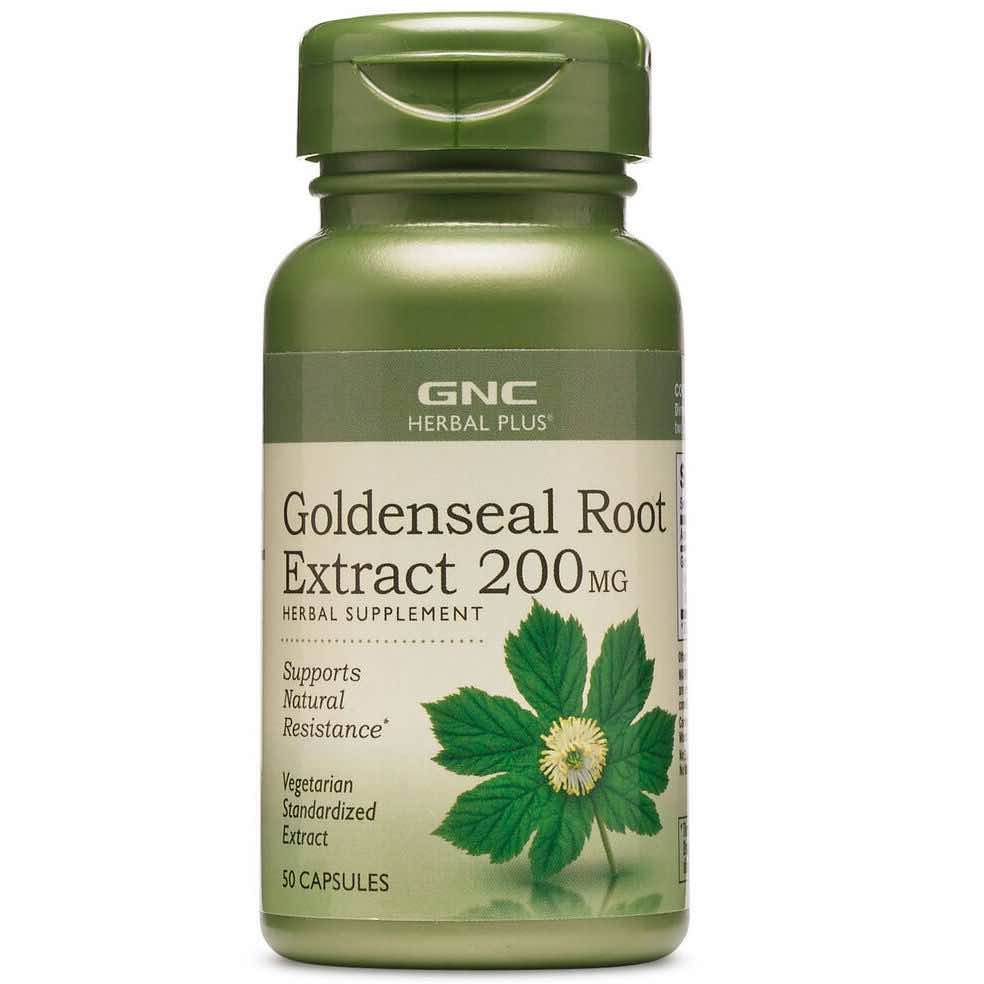
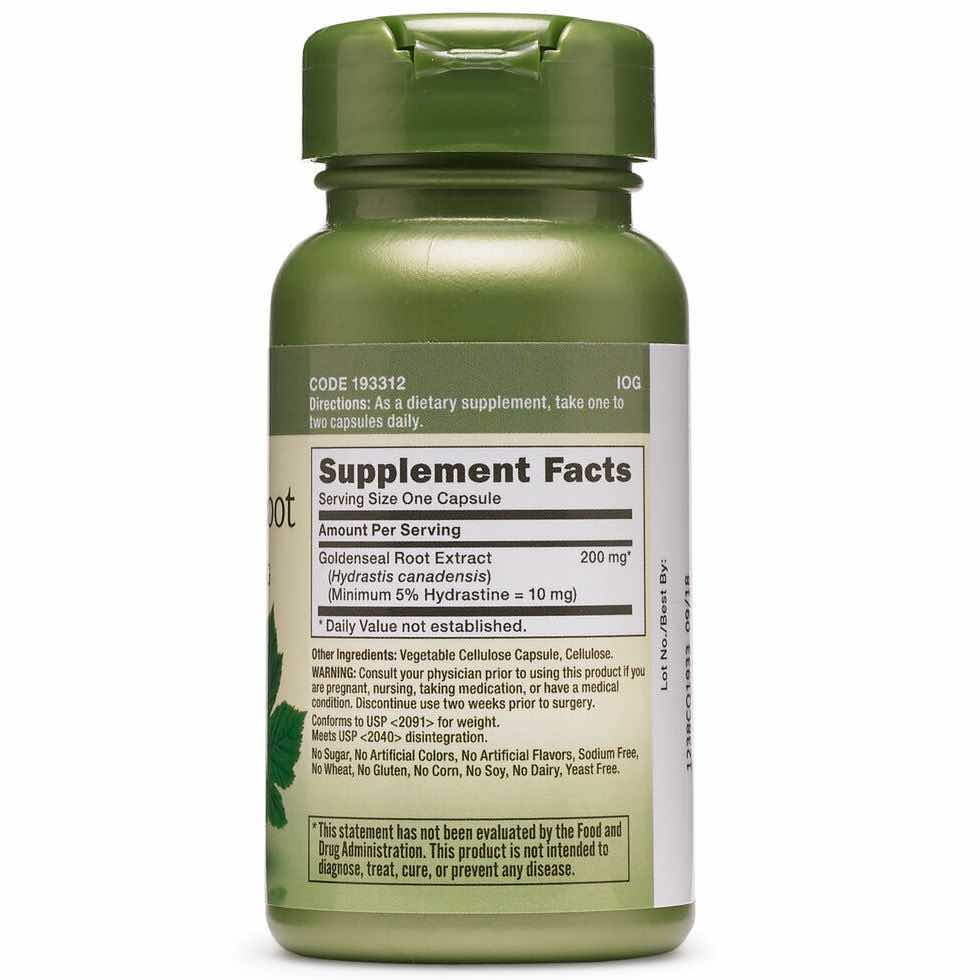
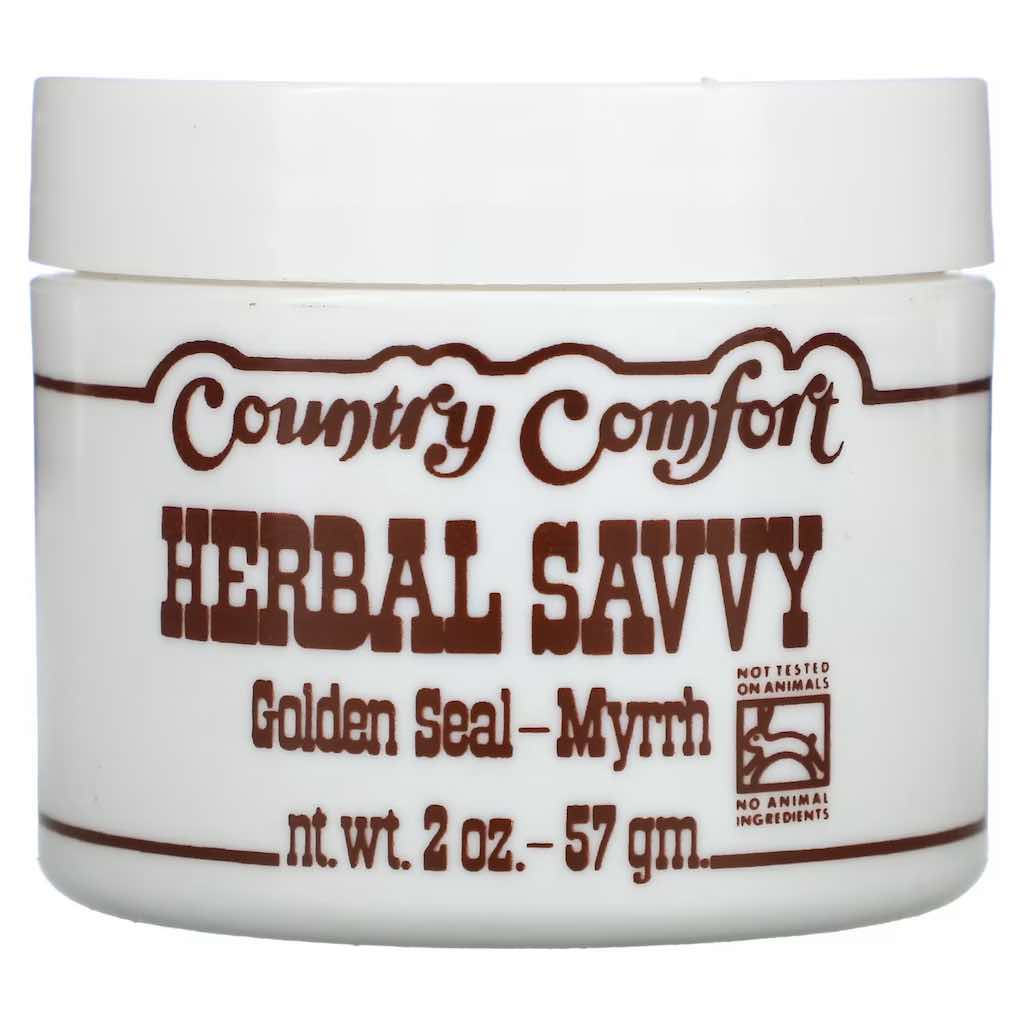
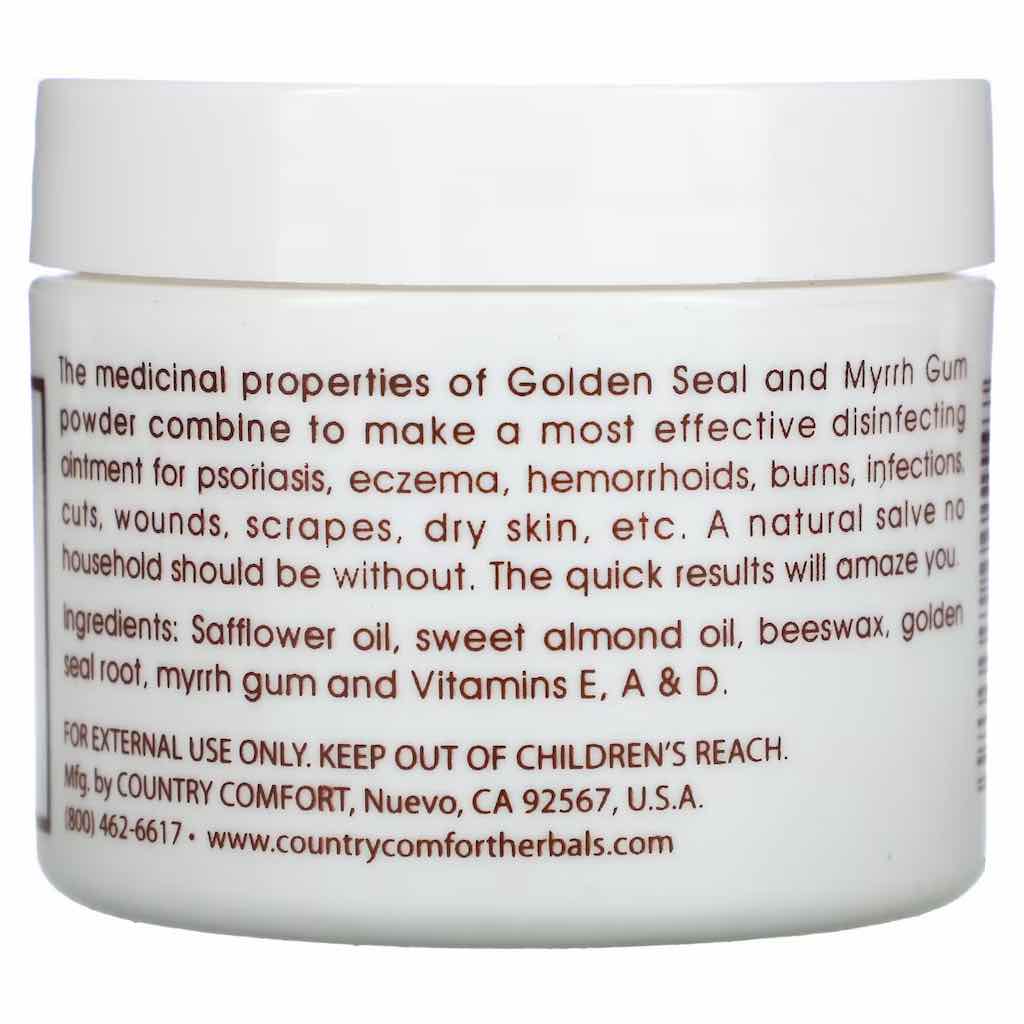
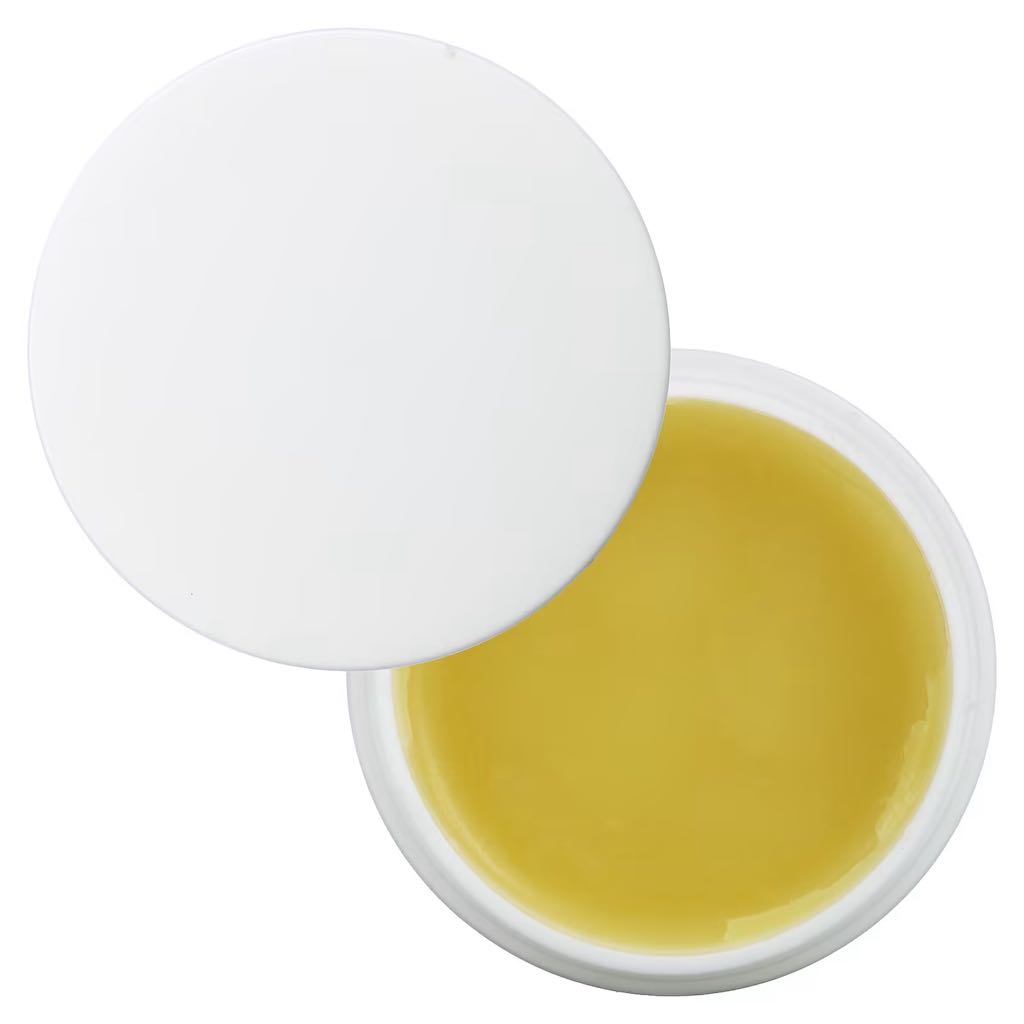

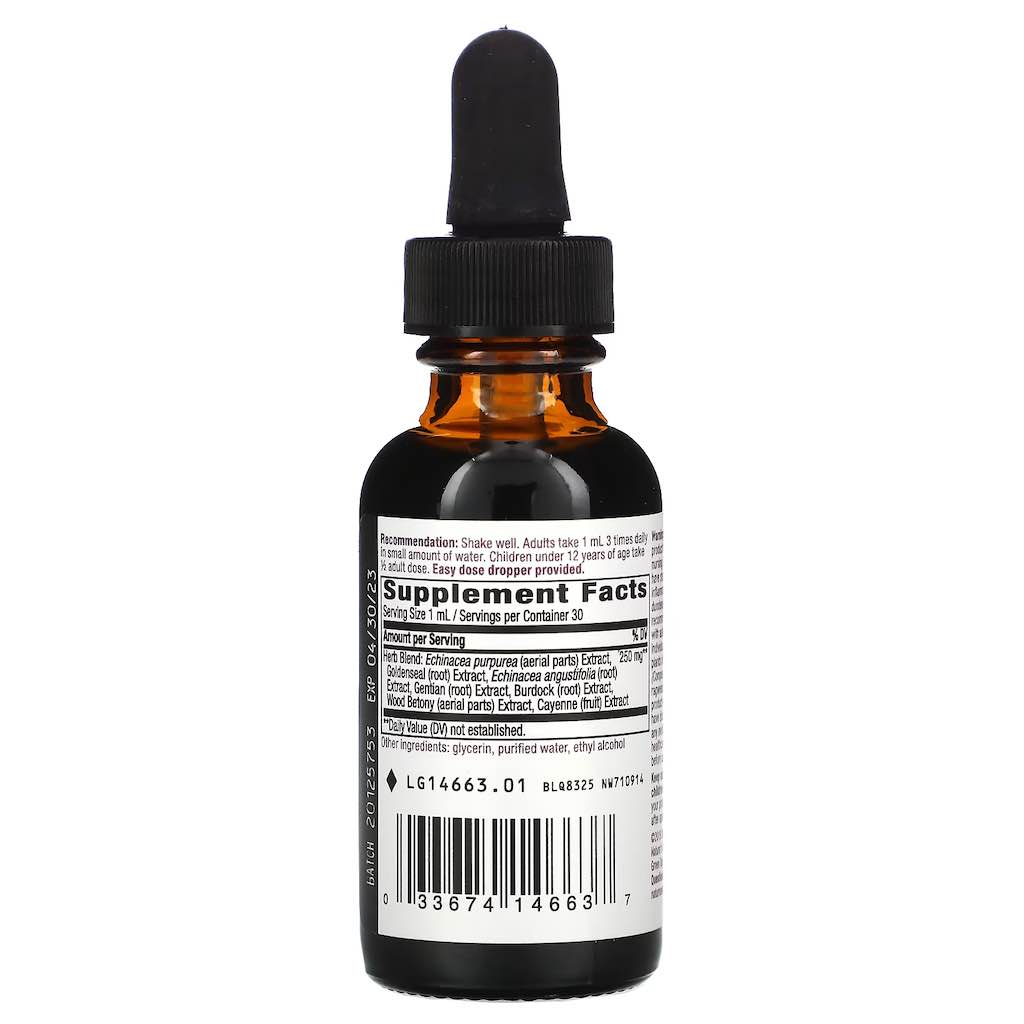

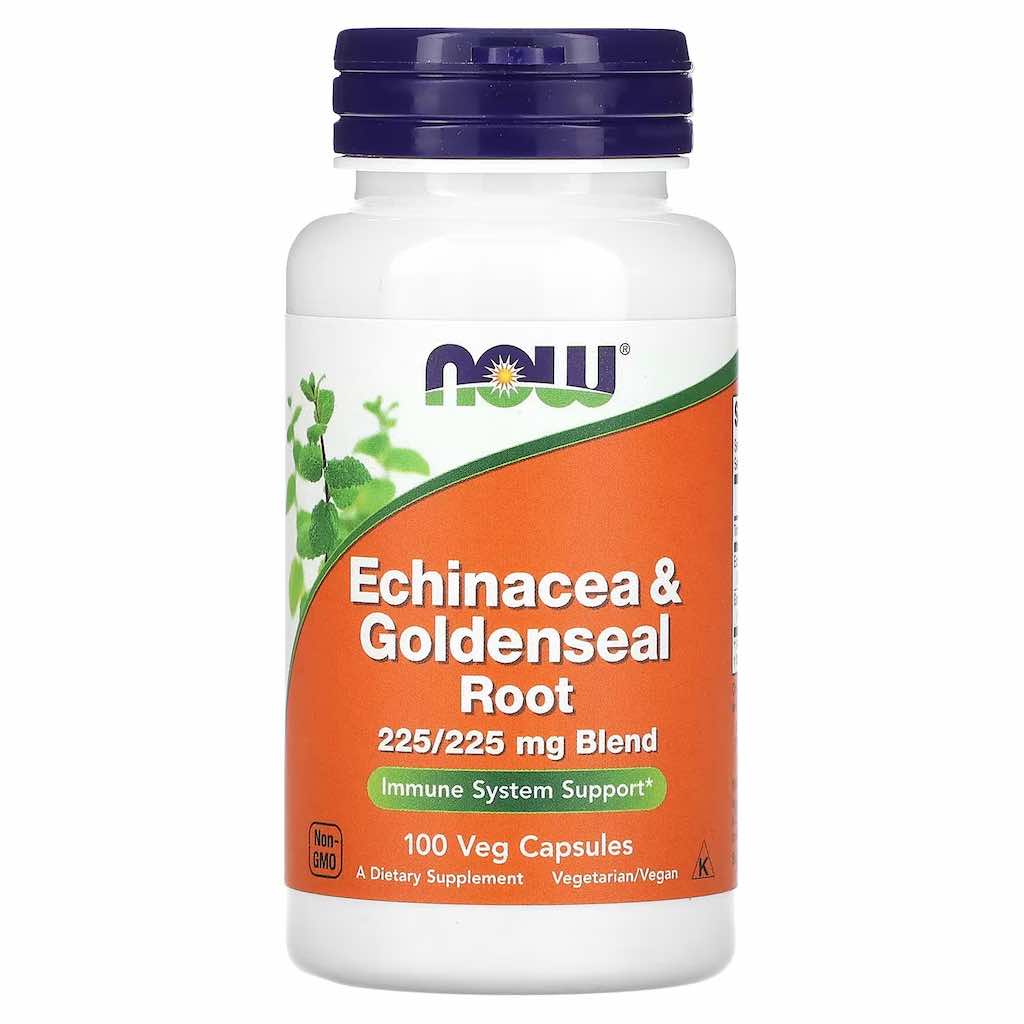


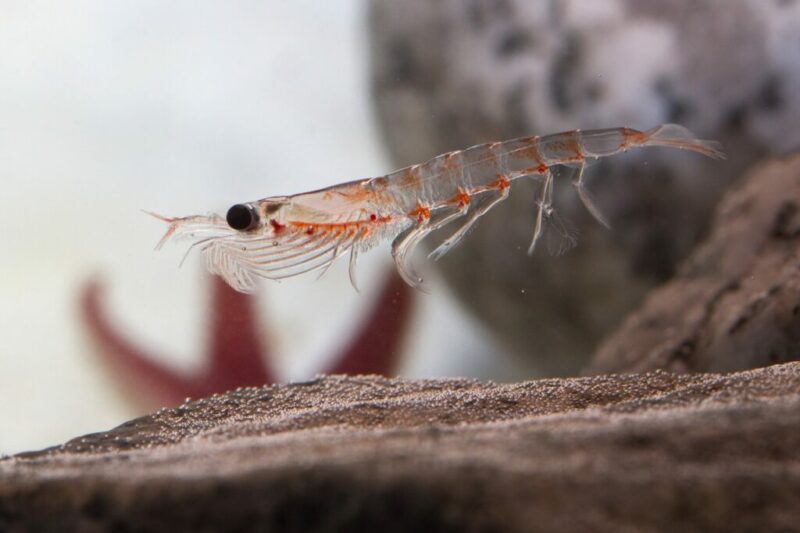



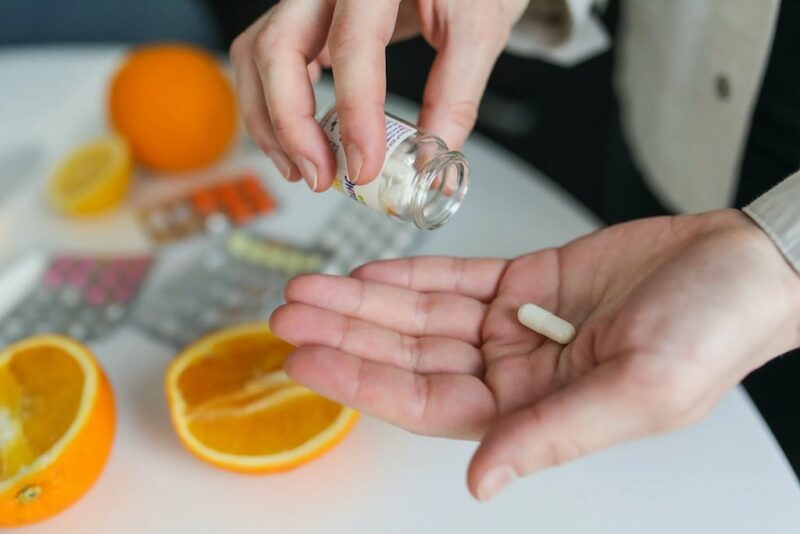




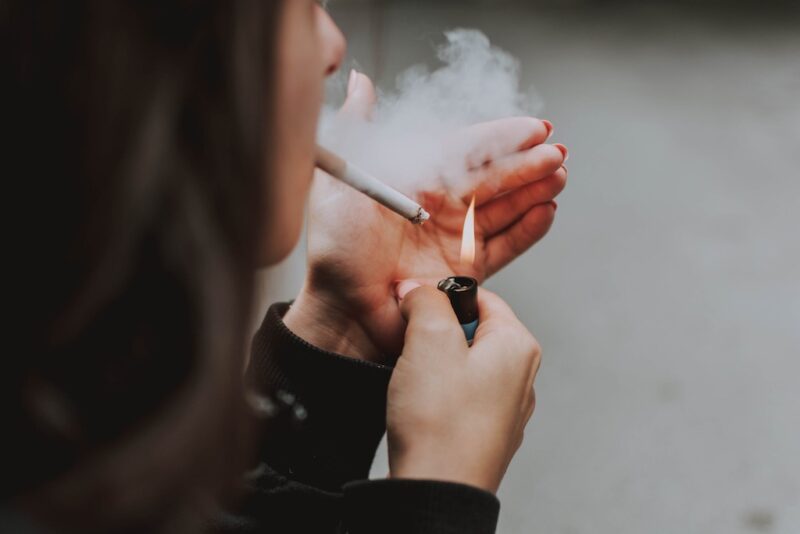
Leave a Reply